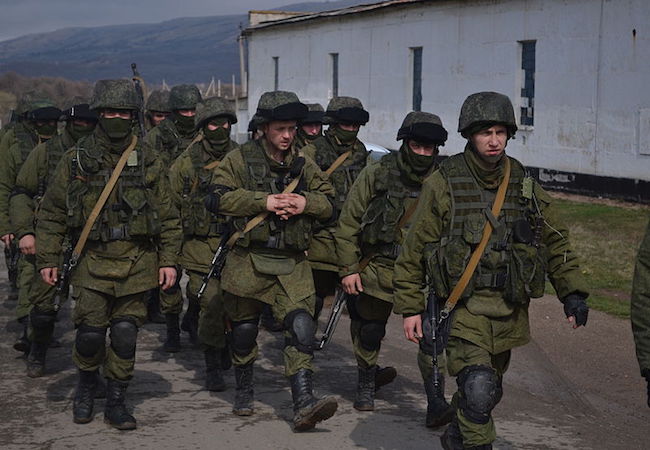
By Paul Shields
The New York Times recently published a harrowing and desperate portrayal of Russia entitled, ‘Where the Booz Can Kill, and Putin is deemed a ‘Good Czar’. The Economist, within the last year, has published a number of publications that feature a caricature of President Vladimir Putin. On the front-page cover of the magazine in the last few years, Putin has been depicted as a puppet-master, a Soviet Leader, and even a militarized Satan.
Russian media similarly provides a continual negative caricature of the United States and the West. The popular state television station – First Channel – provides daily cover age of Syria, where it frequently blames the United States and EU countries for disrupting much needed aid to civilian refugees, while supporting terrorism in the Middle East.
For those who frequently consume political media, we need to ask ourselves why is their mutual demonization between these two countries? What purpose and motives drives these images? The field of discourse analysis and media studies elucidates a possible theory and explanation. One theory of discourse analysis suggests that the representation of other countries in media is used to advance political interests of the state. In this context, political media is used to create a truth or narrative in society through socially shared meanings, which becomes self-serving and sustaining. Thus, in our case, both the United States and Russia have come to demonize one another in their respective media systems, as a way to serve their respective political interests.
So how has Russia challenged U.S. national interests? The list in the last three years is exceptionally long: Russia’s annexation of Crimea in 2014, the on-going military support of separatists in Eastern Ukraine, the interference in the 2016 U.S. presidential election, and the Kremlin’s decision to prop up the floundering dictator Bashar al Assad. From all these examples, it is clear that Russia’s foreign policy challenges the world order constructed by the United States. Thus, the media hammer comes down hard on Russia as a way to rally forces domestically in the United States against these threats. Moreover, it also helps to mobilize resources internationally and draw alliances with countries, as a way to support the weakening economic, security, and political apparatus of the West.
Similarly, Russian media continues to create a villain out of the United States and the West in pursuit of its own interests. The Russian state has focused on legitimatizing its authority through these political images at home, during a time of domestic emergency. A combination of Western sanctions and falling oil prices, that used to float the economy, have pushed Russia into recession. Since 2014, the Russian ruble has collapsed, and the country has only just begun to stabilize its shrinking economy. So in order toraise it self-up during this crisis, Russia, through its media system, brings down the United States and the West.
We cannot control or influence Russian media, but we can influence the rhetoric and political signaling of our own. The continual demonization of Russia ultimately has negative consequences. For instance, the media has come to antagonize and isolate the Russian population residing in the West and within Russia itself. In a report in 2015, the Pew Research Center shows that 81% of Russians hold an unfavorable view of the United States. This number has likely only increased in the last two years. Moreover, the continuous vilification plays right into the Kremlin’s hand, as it frequently showcases snippets of anti-Russianism in Western media to support its own nationalist agenda.
This is not to suggest that we cannot or should not be critical of countries and their foreign and domestic policy. In fact, we have the duty to scorn and rally against politically immoral behavior across the global. But Western media ought to find a way to criticize the foreign and domestic policy of countries, without collateral damage against the people of those countries. This can be done by focusing on policy, politics, and data, while steering clear of criticizing people and cultures. But it first starts by recognizing that our choice of words, and how we choose to discuss these issues, has important consequences.
Paul Shields is a native of the Seattle region and a recent graduate of Stanford University. He is currently living in Russia on a Fulbright Fellowship




